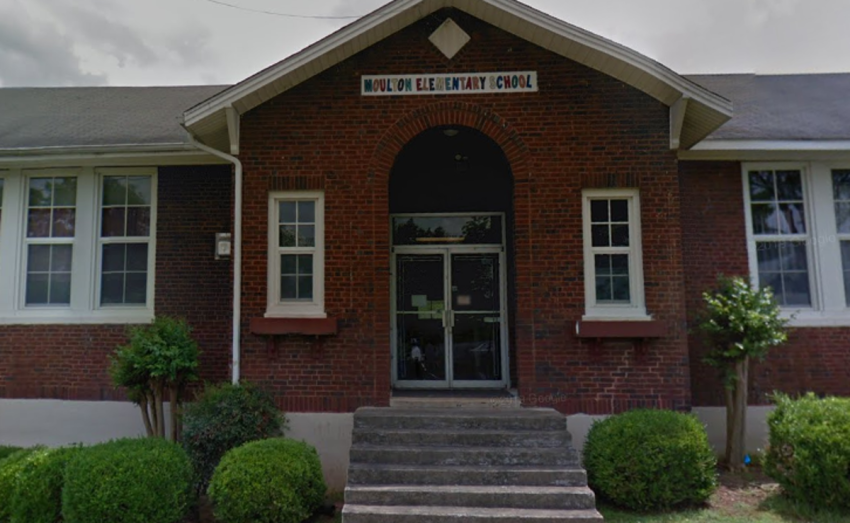Atheist group demands investigation of teacher who used Easter coloring book in class
Superintendent defends teacher

A legal group that advocates for atheists, agnostics and nontheists is calling for an investigation into an Alabama teacher after she incorporated a coloring book picture of Jesus accompanied by a Scripture passage into a lesson plan.
Freedom From Religion Foundation, a Wisconsin-based nonprofit organization that advocates for a strict separation of church and state, sent a letter to Lawrence County Schools Superintendent Jon Bret Smith on July 21 expressing concern that a first-grade teacher at the district’s Moulton Elementary School “taught students about Jesus Christ and Easter, and also provided students with religious coloring book pages to take home.”
The coloring book page in question featured a picture of Jesus Christ along with the words “Jesus is alive” and included a reference to Mark 16:6, a Bible passage that discusses the resurrection of Jesus.
The FFRF letter to Smith follows a complaint from a concerned parent, who maintained that the coloring book page was “not included in the class’ curriculum.”
FFRF Staff Attorney Christopher Line said that the purpose of the letter was to “request that the District immediately investigate and ensure that [the teacher] and any other teachers in the district, are no longer teaching students religious lessons, distributing religious materials to students, or otherwise indoctrinating students into a particular religious belief.”
“The District must make certain that none of its employees are unlawfully and inappropriately indoctrinating students in religious matters by giving religious assignments, teaching about religion, or promoting their personal religious beliefs,” he added. “We ask that the District immediately investigate this situation and ensure that [the teacher] fully complies with the Establishment Clause and stops violating the rights of her students and parents.”
Line instructed Smith: “Please respond in writing, outlining the steps the District will take to correct this serious constitutional violation so we can notify our complainant.” He also insisted that “it is not a violation of the free speech rights of teachers when a school district regulates what they teach to students while acting in their official capacities.”
The letter cited the 1987 U.S. Supreme Court case Edwards v. Aguillard finding that “[f]amilies entrust public schools with the education of their children, but condition their trust on the understanding that the classroom will not purposely be used to advance religious views that may conflict with the private beliefs of the students and his or her family."
“Using a religious holiday, Easter, as a pretext to teach religious lessons in a public school is unconstitutional,” Line maintained. “If the district turns a blind eye to the overt proselytization in [the teacher’s] classroom, it becomes complicit in an egregious constitutional violation and breach of trust.”
For his part, Smith contends that the teacher did nothing wrong. In a statement to The Decatur Daily, Smith said, “From my point of view, an investigation is not warranted” because the teacher was “teaching from the course of study.”
"Every teacher in the state of Alabama is charged to thoroughly teach the course of study," Smith was quoted as saying. "That is covered under two objectives in the first grade course of study.”
Objective No. 11 in the Alabama Course of Study for First Grade Social Studies states that students will “identify traditions and contributions of various cultures in the local community and state.” Specific examples of such “traditions and contributions” include Kwanzaa, Christmas, Hanukkah, Fourth of July and Cinco De Mayo.
Referring to Objective No. 11, Smith said that “If Christmas, Hanukkah and Kwanzaa is in there, so also is Easter.”
Objective No. 12 in the first-grade social studies curriculum declares that students will “compare common and unique characteristics in societal groups, including age, religious beliefs, ethnicity, persons with disabilities, and equality between genders.”
Stressing that “No. 12 talks about religious beliefs,” Smith identified Easter as an aspect of religious belief: “We’re definitely covered with the course of study. We want to make sure classroom discussions are based on the course of study. We teach what has been approved by the state.”
FFRF rejected the comparison of Easter to Christmas, describing Christmas as “a national holiday with pagan origins and many seasonal and secular accompaniments” in contrast to Easter, which it characterized as “a celebration of the supposed resurrection of the Christian deity” and “not a federal holiday.”
FFRF officials believe that the teacher went beyond the course of study.
“Public schools exist to educate, not to indoctrinate,” FFRF Co-President Annie Laurie Gaylor asserted in a statement. “The school district must take action to stop proselytization of a captive audience of 5- and 6-year-old students.”
Ryan Foley is a reporter for The Christian Post. He can be reached at: ryan.foley@christianpost.com



























